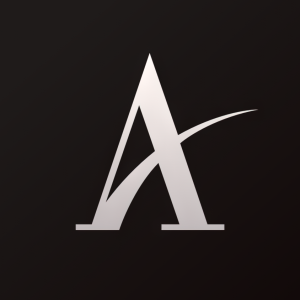Arcturus Announces Regulatory Approval to Proceed with Phase 2 Study of ARCT-810 mRNA Therapeutic Candidate for Ornithine Transcarbamylase (OTC) Deficiency
Arcturus Therapeutics Holdings Inc. (Nasdaq: ARCT) has received approval from the UK Health Research Authority to start a Phase 2 clinical study for ARCT-810, an mRNA-based treatment for Ornithine Transcarbamylase (OTC) deficiency. This study aims to assess safety, tolerability, and efficacy in up to 24 participants over 12 weeks. The trial builds on positive Phase 1 results, highlighting ARCT-810's potential to restore urea cycle function and mitigate neurological damage in OTC deficiency patients.
- Initiation of Phase 2 clinical study for ARCT-810 is a significant milestone.
- Positive safety results from Phase 1 trial support the next phase of development.
- Potential to address a critical medical need for OTC deficiency with no current approved treatments.
- None.
Arcturus Therapeutics Holdings Inc. (the “Company”, “Arcturus”, Nasdaq: ARCT) a leading clinical-stage messenger RNA medicines company focused on the development of infectious disease vaccines and significant opportunities within liver and respiratory rare diseases, announced today that the Company has received approval from the UK Health Research Authority to initiate a Phase 2 clinical study for ARCT-810, a novel mRNA-based therapeutic candidate for Ornithine Transcarbamylase (OTC) Deficiency. ARCT-810 represents Arcturus’ lead rare-disease asset utilizing the Company’s novel, systemically administered LUNAR® delivery platform.
The ARCT-810 Phase 2 study is a randomized, double-blind, placebo-controlled, nested single and multiple ascending dose design for adolescents and adults with OTC deficiency. The study will enroll up to 24 subjects across two dose levels. Safety and tolerability of ARCT-810 are the primary study objectives, and pharmacokinetic and pharmacodynamic measures of urea cycle function will be performed over a 12- week treatment period to access exposure and efficacy of this novel treatment.
“We are pleased to initiate this multiple dose Phase 2 clinical trial of ARCT-810 in OTC deficiency patients. Advancement to a Phase 2 study is supported by the safety results from our ARCT-810 Phase 1 trial in Healthy Volunteers,” said Steve Hughes, M.D., Chief Medical Officer of Arcturus. “We believe that ARCT-810-mediated expression of the normal ornithine transcarbamylase enzyme in the liver cells of patients with OTC deficiency has the potential to restore urea cycle activity, preventing neurological damage and the need for liver transplantation.”
About Ornithine Transcarbamylase (OTC) deficiency
Ornithine Transcarbamylase (OTC) deficiency is a serious urea cycle disorder with a prevalence of approximately 10,000 people worldwide. A lack of OTC, a critical urea cycle enzyme in liver cells, results in high blood ammonia levels that can cause diminished cognitive ability, seizures, coma, and death. There are no approved medicines addressing the root cause of OTC deficiency.
About Arcturus Therapeutics
Founded in 2013 and based in San Diego, California, Arcturus Therapeutics Holdings Inc. (Nasdaq: ARCT) is a clinical-stage mRNA medicines and vaccines company with enabling technologies: (i) LUNAR® lipid-mediated delivery, (ii) STARR™ mRNA Technology and (iii) mRNA drug substance along with drug product manufacturing expertise. Arcturus’ diverse pipeline of RNA therapeutic and vaccine candidates includes mRNA vaccine programs for SARS-CoV-2 (COVID-19) and Influenza, and other programs to potentially treat Ornithine Transcarbamylase (OTC) Deficiency, and Cystic Fibrosis along with partnered programs including Glycogen Storage Disease Type 3, Hepatitis B Virus, and non-alcoholic steatohepatitis (NASH). Arcturus’ versatile RNA therapeutics platforms can be applied toward multiple types of nucleic acid medicines including messenger RNA, small interfering RNA, replicon RNA, antisense RNA, microRNA, DNA, and gene editing therapeutics. Arcturus’ technologies are covered by its extensive patent portfolio (222 patents and patent applications, issued in the U.S., Europe, Japan, China and other countries). Arcturus’ commitment to the development of novel RNA therapeutics has led to collaborations with Janssen Pharmaceuticals, Inc., part of the Janssen Pharmaceutical Companies of Johnson & Johnson, Ultragenyx Pharmaceutical, Inc., Takeda Pharmaceutical Company Limited, CureVac AG, Synthetic Genomics Inc., Duke-NUS Medical School, and the Cystic Fibrosis Foundation. For more information visit www.ArcturusRx.com. In addition, please connect with us on Twitter and LinkedIn.
Forward Looking Statements
This press release contains forward-looking statements that involve substantial risks and uncertainties for purposes of the safe harbor provided by the Private Securities Litigation Reform Act of 1995. Any statements, other than statements of historical fact included in this press release, including those regarding strategy, future operations, collaborations, the ability or timing to initiate or complete preclinical and clinical development programs, including clinical studies planned for ARCT-810, the ability to enroll subjects in clinical trials, the timing of any results (including data readouts), the efficacy or safety of ARCT-810 or other Company programs, the likelihood of success of the Company’s drug candidates, including ARCT-810, or of the Company’s technology platforms, including STARR™ mRNA Technology or LUNAR® lipid-mediated delivery, the likelihood that any preclinical or clinical data will be predictive of future clinical results or sufficient for regulatory approval, and the impact of general business and economic conditions are forward-looking statements. Arcturus may not actually achieve the plans, carry out the intentions or meet the expectations or projections disclosed in any forward-looking statements such as the foregoing and you should not place undue reliance on such forward-looking statements. Such statements are based on management’s current expectations and involve risks and uncertainties, including those discussed under the heading "Risk Factors" in Arcturus’ Annual Report on Form 10-K for the fiscal year ended December 31, 2019, filed with the SEC on March 16, 2020 and in subsequent filings with, or submissions to, the SEC. Except as otherwise required by law, Arcturus disclaims any intention or obligation to update or revise any forward-looking statements, which speak only as of the date they were made, whether as a result of new information, future events or circumstances or otherwise.
View source version on businesswire.com: https://www.businesswire.com/news/home/20210728005370/en/
FAQ
What is the purpose of the Phase 2 clinical study for ARCT-810?
How many subjects will be enrolled in the ARCT-810 Phase 2 trial?
What are the primary objectives of the ARCT-810 Phase 2 study?
What is Ornithine Transcarbamylase deficiency?







